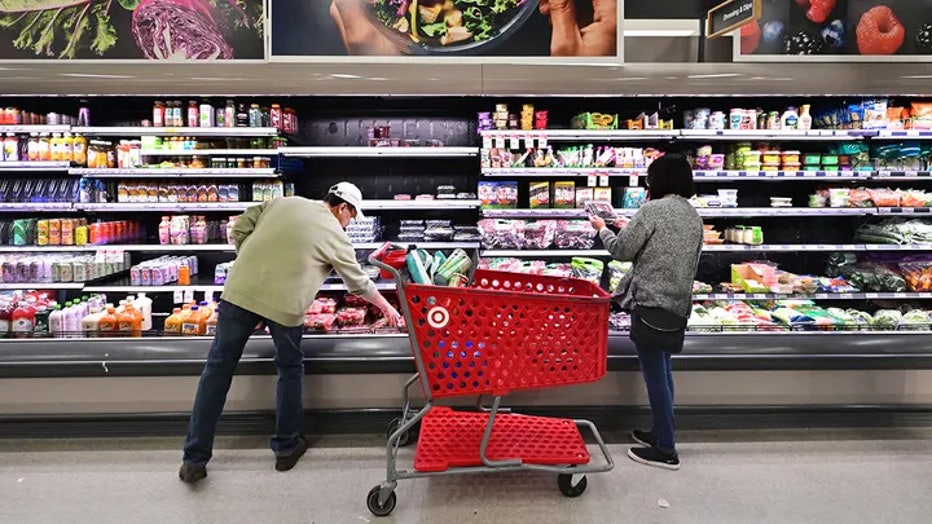March inflation breakdown: What prices are rising the fastest?

Disappointing March consumer price report
Inflation rose more than expected in March, adding to Americans’ prolonged and painful battle with high costs. To give us a better perspective of what this all means moving forward is economist Dr. Mike Walden with NC State University.
Inflation rose faster than expected in March as an increase in the cost of rent and gasoline kept prices painfully high for millions of Americans.
The Labor Department said Wednesday that the consumer price index (CPI), a broad measure of the price of everyday goods including gasoline, groceries and rent, rose 0.4% in March from the previous month. Prices climbed 3.5% from the same time last year, above the 3.2% figure recorded in February.
"This was a painful report with few bright spots for consumers," said Robert Frick, corporate economist with Navy Federal Credit Union. "Not only did most food prices rise after they seemed to flatten out, car insurance had a big jump."
Here is a breakdown of where Americans are seeing prices rising and falling the fastest as they continue to wrestle with sticker shock.
INFLATION ACCELERATES MORE THAN EXPECTED IN MARCH AS HIGH PRICES PERSIST
Rent
Housing costs were once again one of the biggest drivers of inflation last month. Rent costs rose 0.5% for the month and are up 5.7% from the same time last year.
Rising rents are concerning because higher housing costs most directly and acutely affect household budgets. Another data point that measures how much homeowners would pay in equivalent rent if they had not bought their home also climbed by 0.4% from the previous month.

A "for rent" sign is posted in front of a home in Miami on Dec. 12, 2023. (Joe Raedle / Getty Images)
JAMIE DIMON WARNS INFLATION, INTEREST RATES MAY REMAIN ELEVATED
Food costs
Food has been one of the most visceral reminders of inflation for Americans. In March, the cost of food rose 0.1% after it leveled off the previous month. Food prices remain up 2.2% when compared with the same time last year.
Grocery prices were unchanged in March, according to the data, but are up 1.2% from the year-ago period. Additionally, when compared with January 2021, before the inflation crisis began, grocery prices are up a stunning 21%.

People shop in the food section of a retail store in Rosemead, California, on Jan. 19. (Frederic J. Brown/AFP via Getty Images)
The cost of eggs surged 4.6% in March amid another outbreak of the avian flu. Consumers also paid more for other goods, including rice (0.6%), beef and veal (0.2%), pork (1.1%), chicken (1.8%), fresh fish and seafood (0.1%), bananas (0.6%), lettuce (5.9%), juices (0.6%) and coffee (0.3%).
WHY ARE GROCERIES STILL SO EXPENSIVE?
However, the cost of some grocery items actually fell last month, with notable declines in the price of cereal, bread, ham, apples and tomatoes.
Energy costs
Energy prices jumped in March for the second straight month, adding to the financial pressure that many families are already enduring. Prices rose 1.1% during the month, including a 1.7% jump in gasoline.
The average cost of a gallon of gas hit $3.61 on Wednesday, according to AAA, up more than 6% from one month ago. Prices are expected to rise further. Oil prices are rapidly approaching $90 a barrel amid concerns about a wider war in the Middle East.

Gas prices are displayed at a gas station in Chicago on March 12. (Scott Olson/Getty Images)
Electricity costs also jumped 0.9% in March and remain 5% higher than the prior year.
Car & truck costs
There was some good news for Americans looking to buy a car in March.
The cost of used vehicles — which were a major component of the inflation spike in 2022 — fell 1.1% last month and is down 2.2% year over year.
New car and truck prices also inched lower in March, declining 0.2%. Prices are down 0.1% from the same time last year.
However, there is another problem for car owners: rising insurance costs. Auto insurance jumped 2.6% in March, after rising the previous four months. On an annual basis, prices are up a stunning 22.2%.

Inflation report hotter than expected
Sherod Waite, CEO and Financial Advisor at MoneyWise Wealth Management, joins LiveNOW's Austin Westfall to break down the latest Consumer Price Index report.
Travel & transportation costs
Airline tickets fell in March for the first time in months, sliding 0.4%.
The cost of tickets is down about 7.1% when compared with last year, according to the data.

